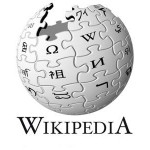 Wikipedia is undoubtedly a hugely popular resource, and it’s managed to shake off initial concerns about its reliability and become invaluable for all manner of intellectual endeavors. For instance, a 2014 study found that around 50 percent of doctors regularly consult Wikipedia for information on various conditions. A year later, a study found that it was increasingly used by students as a reliable source of information.
Wikipedia is undoubtedly a hugely popular resource, and it’s managed to shake off initial concerns about its reliability and become invaluable for all manner of intellectual endeavors. For instance, a 2014 study found that around 50 percent of doctors regularly consult Wikipedia for information on various conditions. A year later, a study found that it was increasingly used by students as a reliable source of information.
It also plays a crucial role in the diffusion of scientific knowledge. For instance, a 2015 study found that Wikipedia articles were generally pretty well researched, and had the latest thinking behind them.
This spread of knowledge also appears to go the other way, with a recent MIT working paper demonstrating the power of Wikipedia to disseminate knowledge into the scientific community.
Spreading knowledge
The research saw graduate students in chemistry create a number of new Wikipedia articles in areas that were currently ignored on the website. Of the articles created, half were then published on the site, with the other half held back.
As you can imagine, the articles that went live received thousands of views, and the researchers wanted to test how influential that was on subsequent scientific work. It emerged that future scientific papers were more likely to include terms used in the articles that went live than they were those that were not published, even though the articles themselves were selected at random.
“Our research shows that scientists are using Wikipedia and that it is influencing how they write about the science that they are doing,” the authors say. “Wikipedia isn’t just a record of what’s going on in science, it’s actually helping to shape science.”
Indeed, the authors were able to quantify the impact, and found that Wikipedia was influencing around one word in every three-hundred, with this impact stronger in countries with less access to traditional scientific journals.
“Public sources of scientific information such as Wikipedia,” the authors say. “Are incredibly important for spreading knowledge to people who are not usually part of the conversation.”
It underlines the important role the site can play in the advancement of science around the world. Earlier this year I wrote about a fascinating new trend called ‘Edit-a-thons’ that were cropping up at scientific conferences.
The events, which were hosted by the Simons Foundation, aimed to leverage the collective brainpower of the scientists present at each event. They were given training and support to ensure they were familiar with editing Wikipedia, and then marathon editing sessions were facilitated during which the scientists contributed heavily in their areas of expertise.
The edit-a-thons have had a considerable impact, with 6,306 articles either created afresh or edited. Collectively, these articles have had over 300 million views, whilst over 2,000 scientific images have been donated to the effort.
What’s more, the project will hopefully have an enduring impact, as a number of the contributing scientists have enrolled as editors on Wikipedia so will endeavor to update the site on a regular basis. Indeed, such has been the popularity of the events, most participants were eager for their to be follow-up events this year.
A paper produced by the Foundation aims to help organizations, conferences and universities organize their own edit-a-thons. It captures all of the lessons and takeaways from the years worth of events, with the hope being that such sessions will become a feature of scientific conferences.
With the influence of Wikipedia increasingly appreciated, these kind of events could be a fantastic way of engaging the scientific community in the upkeep of the knowledge base.